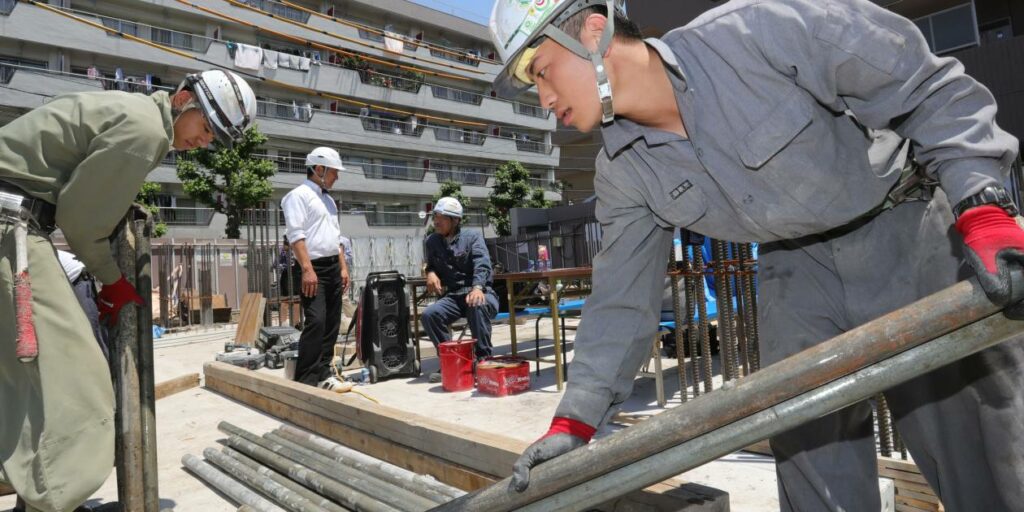Faced with a falling birthrate and an aging population, labor-starved Japan is hungry for foreign talent. The government is rushing to widen its doors for some, rolling out initiatives like expanding foreign worker programs and loosening residency rules for entrepreneurs from overseas, but boosting immigration comes with challenges.
The weakness of the Japanese yen, as well as a revised immigration law some are calling a violation of basic human rights, is complicating the country’s bid to be more welcoming. Here is a selection of stories to bring you up to date on the latest developments.
Thai workers learn Japanese in Bangkok before relocating to Japan. (Photo by Eugene Lang)
Japan is getting ready to introduce a new training and employment program for foreign workers, with the country aiming to provide more flexibility in changing jobs. Fearing workers will pull away from smaller cities, regions outside metropolitan areas are sweetening their offers and bolstering support in a bid to attract talent. Read more.
This week, Japan’s revised immigration law came into effect. The new system will allow deportations of those who have applied for refugee status three or more times if no reasonable grounds for approval are submitted. But critics are taking aim at the new rules, which have stirred debate around Japan’s treatment of undocumented immigrants amid its efforts to attract more overseas talent. Read more.
Over 4% of foreign residents in Japan were not enrolled in the country’s public pension program in 2019. (Photo by Nikkei)
Japan is stepping up efforts to register all foreigners that have newly moved to the country in the public pension program by October. Despite the requirement, some fail to enroll after moving to the country. With the number of foreign nationals living in Japan expected to keep rising, the government plans to put its foot down and shore up a foundation for long-term social stability. Read more.
The yen’s depreciation is depressing wages in dollar terms, driving away foreign workers, especially as the cost of living in cities like Tokyo increases. Japan’s wages have traditionally been low compared with other developed countries but the currency’s fall has made wages look even worse for overseas students. Read more.
Visitors to Japan crowd a terminal at Tokyo’s Narita International Airport.
While younger Japanese people are largely welcoming of the growing number of foreign workers, older generations tend to express reservations toward the influx, a government survey shows. Although 28.7% of all respondents expressed favorable views, edging out the 23.5% who said they were not happy about the trend, there was a significant generational gap in responses. Read more.
Pushing to keep pace with the growing appetite for their services, housekeeping firms in Japan are accelerating their recruitment in places such as the Philippines, especially as relaxed immigration rules for the sector boost the appeal of hiring overseas. Read more.
“Japan’s efforts to persuade foreign entrepreneurs to relocate their bases of operations to the country have yet to make a big impact,” writes Takashi Kumon. The Institute of Asian Studies professor at Asia University argues that “positive perceptions of Japan have created more potential for doing business here, but the challenge is how to convert good feelings toward the country into startup recruits.” Read more.
Source link : https://asia.nikkei.com/Spotlight/Japan-immigration/On-topic-Japan-s-challenges-in-boosting-immigration
Author :
Publish date : 2024-06-14 20:01:00
Copyright for syndicated content belongs to the linked Source.
